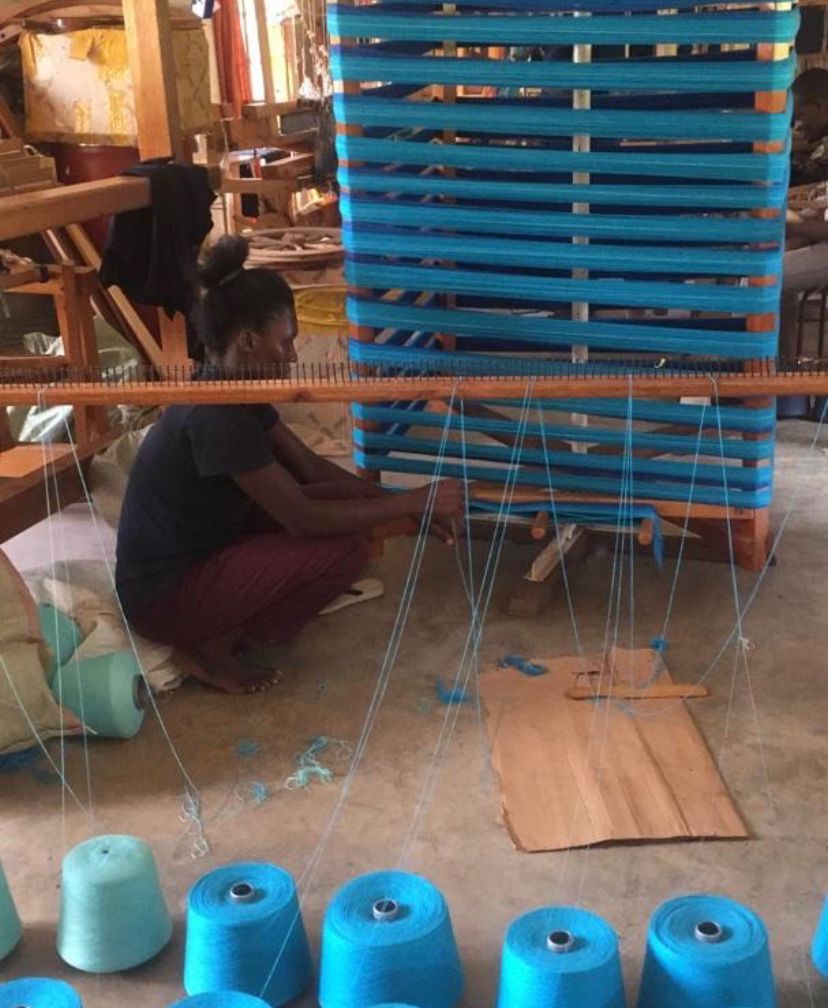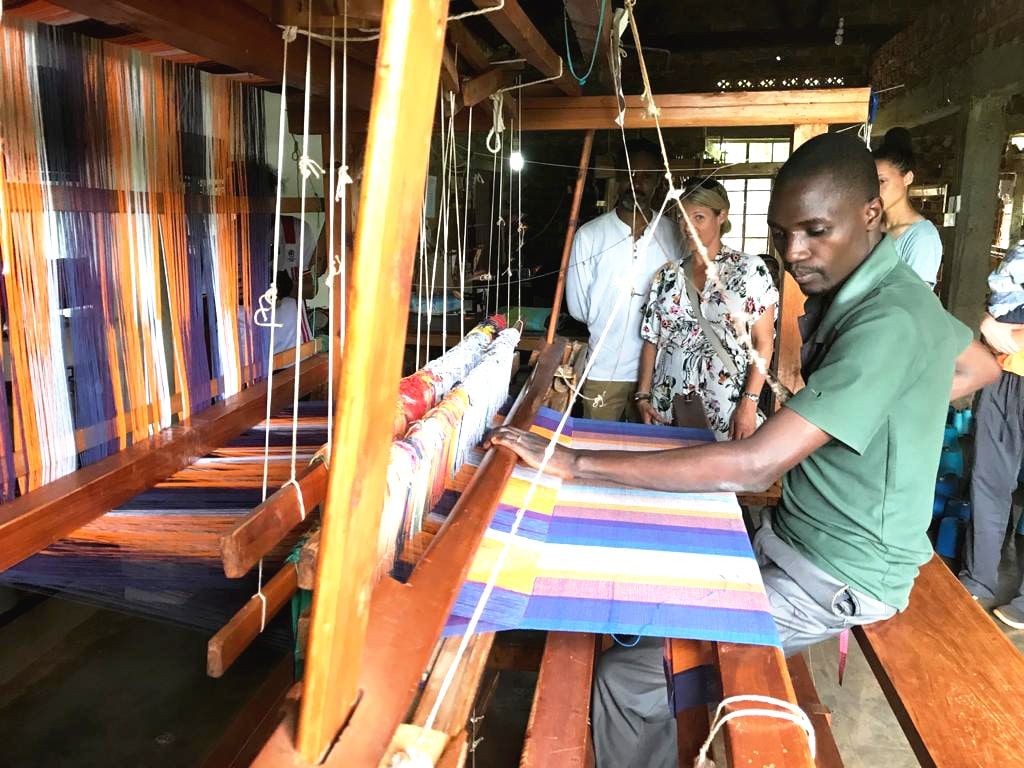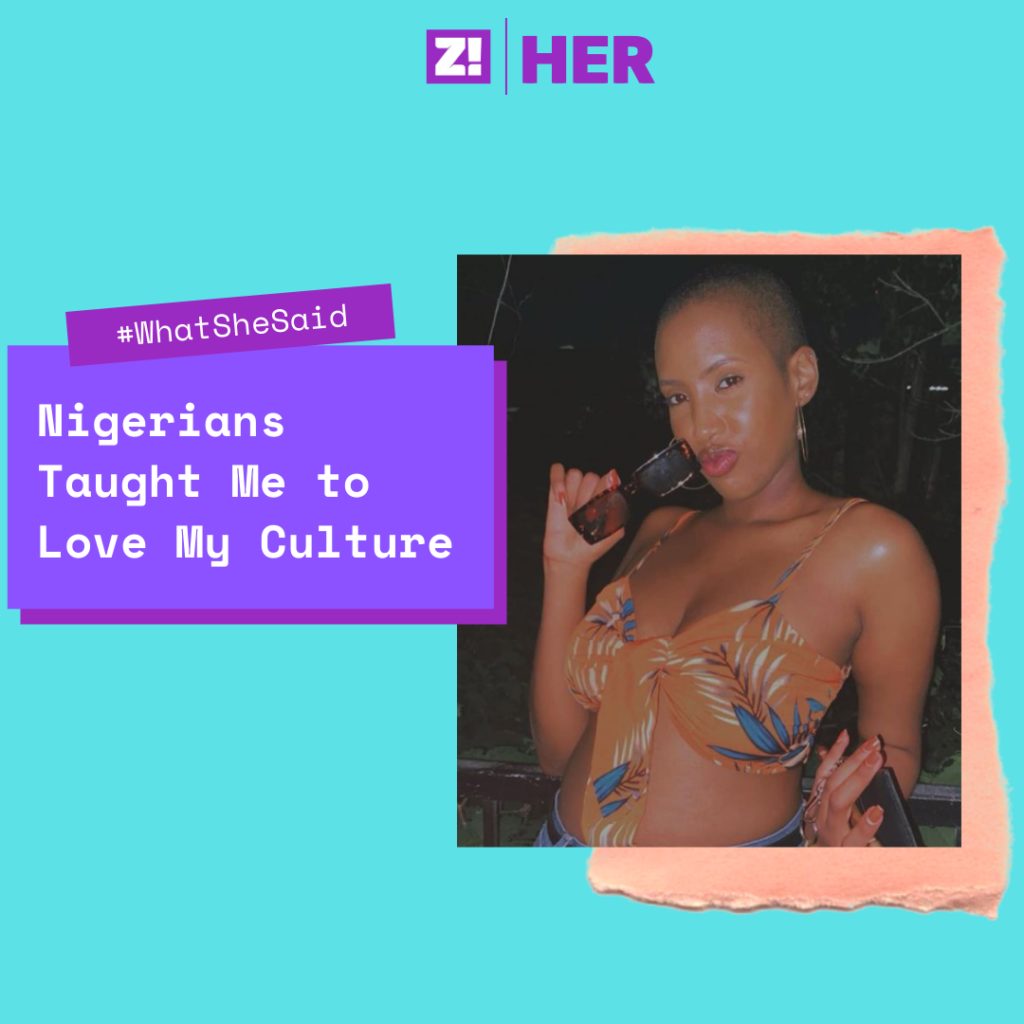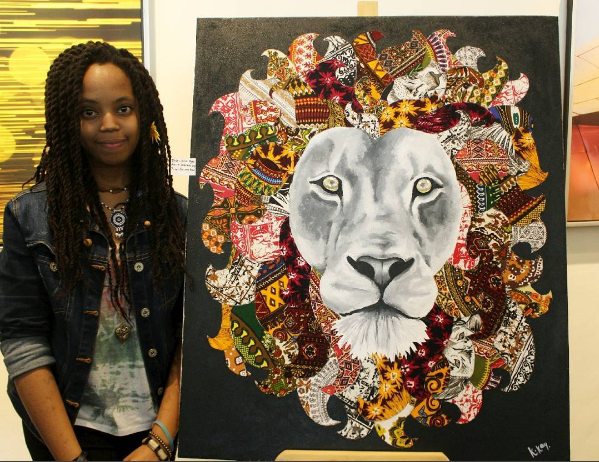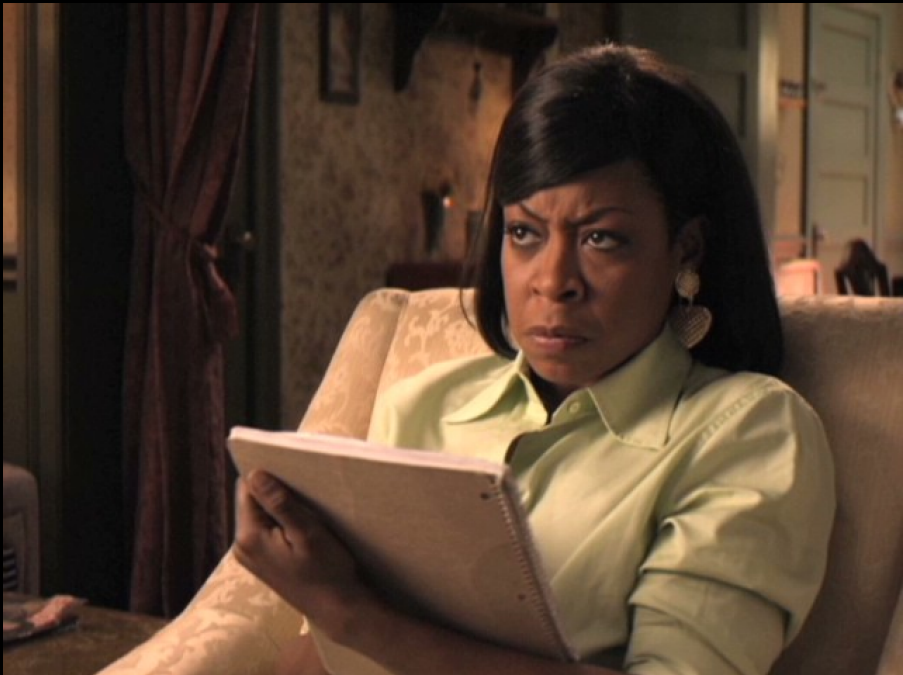Being a first daughter in African homes is a different kind of pressure, responsibility and work. These twenty African women share what being a first daughter is like.
Anna, 22
From a young age, I was expected to take care of my siblings while receiving no care or attention from my parents at all. I was raised by help, uncles, and aunties which basically allowed them to molest me as a child. I was not protected or even considered by my parents, and when they were around they would punish me for the simplest of things. Even to this day, I get berated and emotionally abused for little things like not cooking. My brothers however get gentle treatment for stealing and committing fraud. There has been an inequality in patience, punishment, and love when it came to me and my brothers. That’s why as an adult I have started to neglect my parents and my brothers as they neglected me as a child. I make good money, but I don’t share and I don’t do anything for them because they never did anything for me.
Amaka, 31
Growing up as the first daughter and first child in my home is hard. I have to be the perfect example to my 4 younger siblings, and it’s exhausting. My dad is retired, my mom is a full-time housewife, and my younger siblings are in school. I earn so little, yet, I’m required to give up at least 60% of my salary to my family. I recently stopped giving my salary to my parents because I realised I have a life, and I should take care of myself first. I do not know if this is the biggest mistake I have made because my mom has not given me a breathing space ever since, and my siblings do not talk to me, especially my younger brother. They feel I earn so much, even though they know my current salary is N89,000 monthly. Sometimes, I just want to run away and never come back. My immediate younger brother and sister are in relationships, and my mom never fails to let me know this. She used to say that maybe I have a spiritual problem. I wish I was living far away from my family, but house rent in Lagos isn’t something I can afford. I Had surgery recently and had to reach out to a close friend to help sort my hospital bills. It’s not like my dad couldn’t pay, but he simply refused because I’m the first daughter and should be able to navigate through life on my own. He kept asking what I use my savings for, but I don’t even have savings in my life at the moment. I took a loan last year and I’m still trying to pay it off.
Beth, 19
My parents were horribly strict when I was growing up. I barely went out and did not go to any big parties or raves. They always forced me to go to church as early as them and also be involved in church activities. They freaked out at everything I did wrong, from the small things to the big things like liking a boy to talking to guys. They were very controlling, always wanting to know where I was, what I was doing, and who I was doing it with. They would ask for my friends’ full names and numbers as well as their parents before ever letting me out of the house. Now life is different because I fought them. I hated them for a long time, so once I left the country I just stopped talking to them all together and they hated that. I was very distant and hated being called by them.
Hafiza, 25
I remember as early as possible, anything I did my parents would remind me my younger sisters are watching so I had to be on my best behaviour. My upbringing was pretty strict compared to my younger ones. There are things that they’ll do that I’ll be scared to even try. Now everything I do in life I hear my dad’s voice in my head saying “you’re setting an example for your younger ones”. I’m trying to break from the fear, and am currently like 30% a rebel.
Yinka, 19
In a way, I’m jealous of my younger sister. She’s not under as much pressure as I am. She’s free to wear what she wants, talk to who she likes, and study what she wants. I didn’t have that luxury. I didn’t get a phone until I was in SS3 because they didn’t want me ‘distracted’. My sister on the other hand has learnt to demand her things. She’s getting an allowance when I was too scared to ask for money at her age. I’m learning assertiveness from her.
Hi there! While you are here do you want to take a minute to sign up for HER’S weekly newsletter? There’ll be inside gist from this series and other fun stuff. It’ll only take 15 seconds. Yes I timed it.
Cynthia, 21
Some days are easy, some days are hard. I’m not just the first daughter, I’m also the firstborn. I have 5 younger siblings under me so there’s a lot of pressure. Everyone is looking up to me and sometimes I wish I was born last. There are so many things that don’t come naturally to me, but everyone expects me to do it. I’m an excellent cook, but I don’t love cooking. In fact, I hate the kitchen. My parents always try to remind me that as a woman, I should always be there, but that’s not me. These people also expect me to get a Masters degree and a Ph.D. I will complete my Bsc and maybe get a Masters, but not a Ph.D. Everybody wants me to graduate fast so I can get a job and start taking part in the bills. Some days, I just don’t care about all these and do the things I want to do. After all, I won’t be with them forever.
Samantha, 24
Life as a first daughter means you are an experiment. Every day you’re reminded of what and what not to do because of the “husband’s house”. My siblings can get away with making grave mistakes but I make smaller ones and my head is almost cut off. You’re extra responsible for the younger ones because you’re constantly reminded that you’re going to be their parent when your parents are gone. I love my family members to death, but I could do with a lot less stress.
Evelyn, 25
Being a first daughter means being a third parent to your siblings, whether you want it or not. If your parents work full time, you become their caregiver as well. I have 5 brothers all still under 13, and though I love them and would do anything for them, it feels like I spent my entire life taking care of kids. I’ve been a babysitter, nanny, cook, cleaner, and everything in between. I’m now convinced I do not want kids, as I’ve done my fair share of child-raising and have none left in me. My parents think it’s your duty, that since they took care of me I should take care of my siblings.
Fola, 20
Growing up was draining. I’m the first daughter and only girl with three brothers. My parents were really busy people then and my mum’s cousin stayed with us. She made my life hell. I started cooking at 6 years, and if she was in the kitchen, I always had to be there with her. If she wasn’t satisfied with the house after I’d swept it, she’d slap me 10 times. I grew up thinking my place was serving my brothers and being quiet and reserved. School and books were my escape. I always felt like my mum hated me because she’s a social worker, and I was being abused under her roof and she didn’t know. I’d always lie about whatever scars I had from the beatings. I guess I found my voice in secondary school because I started refusing to do things I didn’t want to do, and assigning them to my brothers. I am not a slave.
Paulina, 26
My mom was very difficult when we were growing up. She had expectations for her daughters and since I’m the first of two girls (we have an older brother), it fell on me. I had to follow her to the market, be in the kitchen with her when she was cooking, all that crap. I hated it and mt house chores so much, and I couldn’t believe I was supposed to do this everyday of my life. The crux of it was that you had to be able to do these things to land a husband.
One incident I can never forget happened when I was about 14 I think. My mom bought pepper and because there was no light, she wanted me to use this stone mortar to grind it with my hands. She had never taught me how to use it, but that day she said I should do it. I couldn’t. My mom called me all sorts of names. She said I was useless, compared me to a neighbour’s niece that was always doing house chores, and said a lot of hurtful things that I don’t remember. I remember standing there, crying. My little sister was crying too. It’s a really painful memory. Anyway as I got older, and learnt the wicked ways of feminism, I decided that I just won’t do it anymore. My brother wouldn’t even wash the plates he uses to eat, but I was expected to cook, and mop, clean and do all these things. I was resentful. When we moved to our house, space was much bigger and sometimes I would still do it, but only when I wanted. This was after university. Now, I don’t care what happens in the kitchen. I don’t help out, and I only cook when I feel like it. It was a long, hard road but I like where I’m at right now. Apart from a few things, my parents are pretty great.
Adaeze, 20
Being a first daughter is really a lot. It was all fun because I was born with a silver spoon but as the years passed, the colour of the spoon changed. We’re just 2 kids, and it’s been my responsibility to take care of the house generally including visitors and friends. I’ve been an adult since I was 8 and now that I’m 20, I want to be a child. My grades must be up, and I didn’t even have a phone till I entered university because I had to be “serious” and not get distracted by social media.
At 19, I told myself that I’ll stop asking for money from my dad. So I started a small business and luckily I can foot some of our bills. I couldn’t even visit my friends except for when I snuck out, or a family member went with me. Being a first daughter is all bills and responsibilities. Sometimes, I wish I had a senior brother.
Hi there! While you are here do you want to take a minute to sign up for HER’S weekly newsletter? There’ll be inside gist from this series and other fun stuff. It’ll only take 15 seconds. Yes I timed it.
Ronke, 27
Growing up, I was reminded at every opportunity about how I am the anchor that my siblings are holding on to. I didn’t have the luxury of making mistakes and when I did, I was disciplined thoroughly for it no matter how little. It was very painful for me because my siblings didn’t get that kind of treatment when they misbehaved too. At some point, I questioned if I were born by my parents and not adopted. For every decision I made, I had to think of family first before making. This really limited me in every possible way. I was a very intelligent girl growing up, but I didn’t take or know about risks or opportunities available because of the shielded life I lived. I am older now and I try on a daily basis to live life now thinking about me first. The keyword is TRY. It’s a daily struggle trying to do things that give me comfort or grow me.
Nana, 23
I find it hard to believe my age because of the things I do. Being a first daughter in an African household, you are actually the one that makes the decisions in the family because both your parents seek your opinions first. It’s being responsible for your siblings and your parents. That’s why some of us may come off as controlling or strong-willed in relationships because we are used to making all the decisions. I’m blessed to have a job that pays well, but I can’t do the things most people my age do with their money. While my friends are trying to spend on the latest gadgets and hair and how to travel; I’m thinking about how to pay rent, take care of household items, send money to my parents, and take care of my siblings. I’m broke all the time because I’m also trying to save for my personal goals too. Being the first daughter is actually a lot of sacrifices. Please, send money to any first daughter you know today.
Odion, 27
I am the first daughter, yeah and as far as my mother is concerned that means the second mother. Since I was little, I was responsible for my siblings and everything they did was on me. I have an older brother, but it is still somehow my responsibility. Even now, my mum calls me to report my siblings to me. It has some perks, like them assuming I have sense so anything I say goes. So I use that opportunity to slide in what my siblings want, but can’t tell them.
Janet, 24
Ever since I was a child, I’ve always been expected to be an adult. I have had to take care of everyone. It could be really tiring because everything I do is supposed to be an example to my other siblings. I am expected to carry the responsibilities of a son but have none of the privileges. I have a 15-year-old brother, and I don’t want to say he’s useless but I know that at 15 I was already an adult. In fact, my adulthood came when I was in primary 3! I dare not do half of the things he does now.
Kiki, 23
It was cool being the first child and daughter up until I was 7. That was when they found out my brother wasn’t well and everything went bad. It put a strain on their relationship, and they eventually got a messy divorce. I got back from boarding school didn’t get to see or speak to my mum for years.
My dad remarried, so that began a new life with a new woman and a new state for me. I basically raised her three children (my beautiful sisters). So a lot of things had to be held back because of them. I was always so happy when I was going back to boarding school because I never really felt seen at home except when it involves the kids. Thankfully, I was lucky to get into University after secondary school so I thought that would help me escape living in that house. My cousin who lived with us and I would do basically everything in that house and I hated it. That probably explains why my love language is Acts of Service. I have gone through a lot and right now I only seem to gravitate towards people who make my life easier. Even when I gained admission to the university, my dad didn’t let me go to the hostel even after I had paid for accommodation. That affected my studies because I’d wake up early to cook, clean, and make sure the kids were ready for school before getting ready for my own school. While in school, I would literally shuffle from one campus to another because I was struggling with my clearance and still trying to attend lectures. I’ll then head home to make food for the house and take care of the kids. I used to doze off in buses.
I finally put my foot down in the middle of my second semester, when I reflected on the fact that my results were not great. That was when I learned that my step-mom was actually the one convincing my dad to keep me at home so I could take care of the children. This just made it a priority for me to ensure nothing kept me in that house for long. So before I graduated, I worked on getting a job in Lagos and left. Now they just call me to talk about serious stuff or consult me on some topics but otherwise, I can’t be with either of them for more than a week and not be irritated.
Jumoke, 25
It is hard raising kids I did not sign up for. I have 3 siblings ages 7, 5, the youngest one is almost 2 years old. 2 years ago, my father threatened to kill my mother if he came back to the house and found her there. This would have not been the first time he had hit her, because his beatings have cost her one pregnancy. Her family members shunned her because they all warned her not to marry him, so she had nowhere else to go but with me. My mother had me when she was 14, so we are very very close. Everything that affected her affected me too. I couldn’t work for a long time because I couldn’t concentrate at work. I became the primary caretaker of 3 kids and a mother. My salary is not enough for that so I’ve had to take loans, ask friends for money, and do things I’m not very proud of all because I want to make sure they’re okay. I’m happy for the little things like being out of that evils man’s life and that’s very important to me. I’ve crossed the really hard part. The rest will be fine too.
Gina, 23
As a younger child, it was actually awesome. I already had two older brothers, and even though they hated my guts because I was the “favourite child”, my dad loved and pampered me to bits. It was all rosy until I was about 10. My parents got separated and it became hell for me, both mentally and physically. The maids we had didn’t really like my dad, so they all left when my mum left, so it was just me. I had a sister but she was still too young to help out around the house. Every one became my responsibility, from my dad to my youngest sibling. I didn’t have a social life as a teenager. When I was in secondary school, I had to get my siblings set for school, then after that, I still had to help my dad get set for work too. I couldn’t leave for school until I’d given him breakfast and packed lunch for him. I hated my siblings so much because they never bothered to help out. One night, I was the the back of the house doing the dishes and started crying.
It felt like I was invisible and all I was alive to do was take care of everyone else. I used to wish for a major illness just so I could get a really needed break. When I got to university, I had to school from home for the first 3 years because everyone still depended on me. I never got any form of appreciation from my siblings. I eventually had to learn to stand my ground and refuse to do things I knew would inconvenience me. Even when I got my own apartment at the university for the last 2 years of school, it wasn’t really different because my dad expected me home EVERY WEEKEND. The rest I thought I could get, I wasn’t having it. My siblings only started showing gratitude for how much I take care of them as they got older, especially my younger siblings, they call me their second mother. My siblings and I have a better relationship now, they now see me as human. I think they thought I was a robot before. I had to sacrifice a lot of time and personal frivolities to cater for my family and I always wonder what my life would have been like if that was different.
Joan, 22
I have three younger ones and they don’t help out like they should, but my folks don’t feel the need to correct that. They always come to me to tell them to get things done. When I’m not around, they can’t function properly. One day before I went out, I cooked food for then. Since I did not tell my sister she was supposed to put the food in the freezer, it went bad. My mum didn’t shout at her, she came to shout at me. I had to remind her I wasn’t home so instead of shouting, she just complained and dropped it. My dad eats breakfast as early as 8 every day, and I have to get up all the time to make food for him. If I don’t do it nobody will. When I oversleep, he goes out without eating and then it becomes an issue. They never shout at my sister for not waking up early to make his food, it’s always me. I’ve confronted my mum severally about it and she tells me she’ll change the way it is, but it’s still the same way and I’m tired of complaining.
Chika, 23
It’s a lot of expectations. From how I look to what I studied in school. By the time I got to my final year in school, my mother was already talking about marriage. It’s suffocating. I made a run for it and haven’t been home since I left. I recently got a stable job, and while the salary isn’t bad, it isn’t great either. I’m paying rent and taking care of myself without any support from home, but every time she calls it’s to make demands. She guilt trips me if I can’t make something happen. At some point, I struggled with how I looked because my mom was constantly nitpicking at my weight. Even now she still does, but I just don’t care. She’s said so many hurtful things to me over the course of my life and now she’s trying to friends. Recently I clocked that a lot of the decisions I’ve made we’re subconsciously getting me away from my family.
For more stories about women and women like things, please click here
[donation]
.
